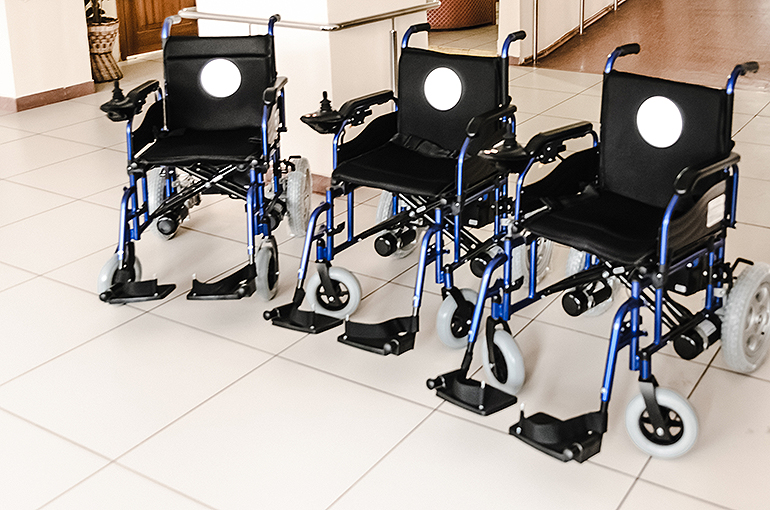 China's Silver-Hair Home Appliance Sector Is Still Young, CHEARI Exec Says
China's Silver-Hair Home Appliance Sector Is Still Young, CHEARI Exec Says(Yicai) Oct. 24 -- Chinese home appliance makers are slowly waking up to new opportunities in the segment of senior citizens, according to a testing institute executive.
The home appliance market targeting seniors is still in the initial stages, Li Hongwei, deputy head of a testing center of the China Household Electric Appliance Research Institute, said to Yicai in an interview.
But the demand is expected to soar because China is aging quickly as by 2030, the nation is predicted to have 300 million people aged above 60, according to the official forecast.
In the past two years, Chinese manufacturers have started seeking new business growth points via elderly tech while fulfilling their corporate social responsibility as the broader home appliance market is about to become saturated, Li said. These special products are still expensive because the market is not large yet, Li said, adding that those aged above 70 and living alone have higher requirements for product design.
The institute, affiliated with the State-owned Assets Supervision and Administration Commission of the State Council of China, began formulating criteria to certify electrical appliances for older people in 2021. It has set up standards for 12 kinds of products and four national design standards in this regard. The 12 types of products include air conditioning units, fridges, washing machines, television sets, rice cookers, but also remotes to control smart home appliances.
The CHEARI used to volunteer to offer certification services but now rising demand has prompted companies to take the initiative to approach the institute, Li added.
Big brands are testing the waters. Two years ago, white goods giant Midea Group launched Meysion, a new brand for elderly people. Moreover, Haier Group, known for its refrigerators and washing machines, has set up an internal platform for products designed for older people. Gree Electric Appliances has also debuted silver-hair products and Japan's Panasonic Holdings Corporation has brought such devices to the Chinese market.
The segment also allows firms to apply novel technologies such as voice assistants, cameras, and sensors to help senior citizens share data with families and medical professionals. At present, the majority of products in the segment involve basic design adjusted to the particular user group, Li said, adding that soon there will be home appliances that are specially designed for seniors such as anti-scalding electric kettles and equipment to help with assisted toileting.
Standards should be improved to underpin growth, Li said. Some of the development directions could be that companies make specialized designs for different age brackets of old people or then the general design of products will become more elderly-friendly, the executive added.
Editors: Tang Shihua, Emmi Laine